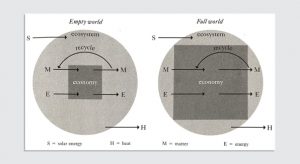
Why say “that’s odd,” when you can say, “that’s an anomaly”? Maybe it’s because you’re trying to look more intelligent. A study by the education platform Preply, found that nearly three in five people have used complex vocabulary to appear smarter. Often, it’s to make an impression. The survey found that seven in 10 said they had used complex vocabulary to impress someone in a professional setting, most often their boss and colleagues.
It seems to be working. More than three quarters respondents believed that using big words or a complex vocabulary makes someone seem smarter. The top five words most likely to make someone sound smarter are “articulate,” “accolade,” “brevity,” “adulation,” and “anomaly.”
But 58% of the people in the survey admitted they’d used a word to sound smarter, even though they didn’t know what it meant.
“Big words only work if you know how to use them,” says innovation and leadership consultant Val Wright, author of Words That Work, Communicate Your Purpose, Your Profit, and Your Performance. “If 58% of people are using words they don’t understand, how many of those on the receiving end are getting confusing messages? Is anyone pointing out that they used a word in the wrong context? That truth telling is essential in any setting and pointing it out with the best of intentions requires finesse.”
But there are downsides. Forty-three percent of people assumed someone using a complex vocabulary was trying to sound smarter than they really were. And more than half of the people in the survey said they’d tried to end a conversation because of it. Complex language tests the other person’s patience if they don’t know what you mean.
“Corporate buzz word bingo has been a long running game in meeting rooms around the world, because the precise words you use can either cause your colleagues to agree with you or eye roll when you aren’t looking,” says Wright.
Getting It Right
In the board room, during career promotion decisions, at investment rounds—that is when your vocabulary matters most at work, and you see the results of the language you use. Wright shares a few ways you can expand your vocabulary to get the right reaction from those around you:
“Match your vocabulary style to that of your company and the customers that you serve,” she says. For example, a retail fashion company targeting teenagers may have a different communication style to an airline manufacturer.
When you come across a new word, be curious about it. Learn the definition and challenge yourself to use it three times within a week. Wright says Vocabulary.com has great resources for exploring words that will work and gives usage examples from different sources.
Finally, edit your written work and challenge yourself to move away from common words and use words that captivate without losing your meaning. “When preparing executives for their on-stage speaking events, I encourage them to prepare specific phrases they will use that will cause their audience to pause and think,” says Wright.
Words don’t even need a lot of letters to be considered big or complex. “Wordle has millions divided, not least because of the obscure words that many are complaining they have never heard of,” says Wright. “The simple daily word game . . . perfectly demonstrates that your vocabulary is a hot topic of debate.”
Fast Company , Read Full Story
(23)







